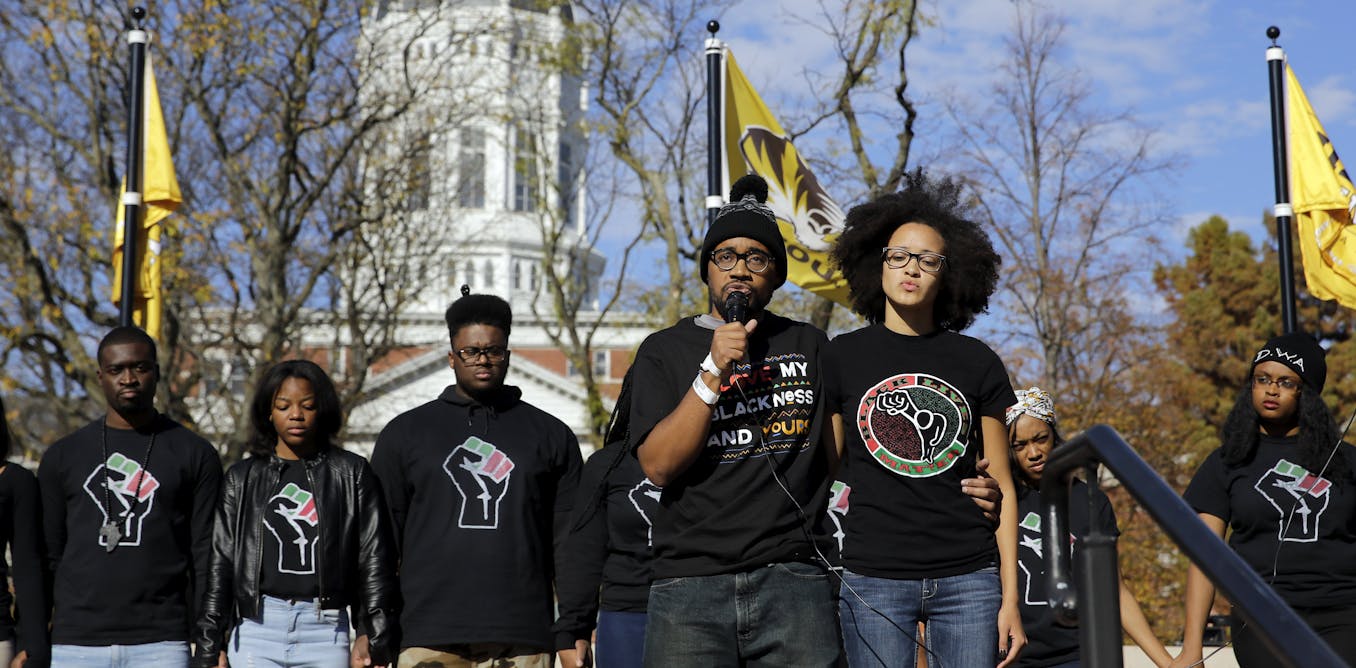Education
Teacher lawsuits over forced grade inflation won’t fix unfair grading – here’s what could
After refusing to give some students grades they hadn’t earned, high school chemistry teacher Toni Ognibene sued the Clovis Unified School District in California for allegedly retaliating against her. The lawsuit was filed in December 2023.
In 2020, Michael Ramsaroop, a teacher at the Academy of Hospitality and Tourism High School in Brooklyn, New York, sued his principal, his union and the city’s Department of Education after he was fired following a series of disputes that began when he refused to change his students’ grades.
In 2018, fifth grade teacher Sheri Mimbs sued Henry County Schools in Georgia. She claimed she was fired in 2017 for objecting to the assistant principal’s directive to change a number of zeroes she reported for students’ missing assignments. The district had a policy, she asserts, indicating that a failing grade of 60% is the lowest possible score a student can receive on any particular assignment or exam.
Ognibene, Ramsaroop and Mimbs are among a growing group of teachers rebelling against orders to change grades – and filing federal lawsuits to allege they’ve been disciplined for their refusals or protests.
They object to directives to ease grading standards, pass failing students and implement minimum grade policies – for example, policies requiring all students to receive a grade no less than a “D” or 60%. The educators assert that these are dishonest and unfair practices that misrepresent students’ true academic performance.
As a scholar of education who studies grading practices, I view these lawsuits as proof that some districts are undermining teacher autonomy and disregarding the importance of accurate grades. I’m also aware that in many cases, administrators are trying to correct unfair grading itself.
I believe the system needs serious reforms, and I have some ideas.
Lawsuits over ‘grade inflation’
Each of these lawsuits is alike despite differences in geography, subject matter and grade level.
Ognibene said she received a formal “Memorandum of Concern” after resisting pressure to raise students’ grades on multiple occasions. “I didn’t want to do it, but along with being against it for ethical and moral reasons, my credential was at risk,” Ognibene told the Sacramento Bee. Her lawsuit is pending.
Ramsaroop alleges that his refusal to inflate grades began a series of disputes that led to his 2017 termination. The principal “created a hostile work environment based upon his age and seniority at the Academy … in retaliation for his opposition to falsifying student grades,” the lawsuit claims. Ramsaroop’s lawsuit was dismissed in 2022.

Likewise, in 2018, Mimbs alleged that she was fired for protesting an administrator directive to not give grades below 60%. The case, dismissed on technical grounds, was revived by the Georgia Supreme Court in 2022. It is still pending. Mimbs, meanwhile, says she hasn’t been able to find a teaching job since her firing.
If teachers give students grades they haven’t earned, “how do we know when kids are failing or when they’re doing well?” Mimbs asked WSB-TV in Atlanta.
It’s an important question. Grades remain the primary basis for making important decisions about students. They determine a student’s promotion, honor roll status and enrollment in advanced or remedial classes. They factor into special education services and college admissions. Parents turn to grades to reward their child or determine if support, such as tutoring, is needed.
Everyone involved – the school, the teacher, the specific student, their classmates and colleges – suffers harm when grades are inaccurate, inflated and unjustified.
Research shows bias, inequity in grading is real
Still, there are serious concerns with how grading works. As I wrote for The Conversation in March 2023, there is also a wave of litigation across the U.S. in which students and parents are suing schools over grading schemes they claim are unjust and inappropriate.
While teacher autonomy is a bedrock tradition in education, my research shows it also results in inconsistency, inequity and even unreliability. What one teacher considers a quality assignment or paper, for example, can differ greatly from another. Teachers often include aspects of students’ behavior, such as effort and participation, in the grades they assign.
I contend that mixing students’ behavior with their academic performance distorts the meaning of grades and diminishes their academic accuracy. Students of color may get lower grades when teachers’ implicit biases influence how they consider behavioral factors when assigning grades, studies show.
Minimum grade requirements, then, are a way some schools address these issues. But multiple recent investigations show that report-card grades often don’t accurately reflect how students perform on tests at the end of the year.
Three ways to fix the problem
School leaders shouldn’t wait until a conflict arises to ensure grade integrity. Here are three practical steps administrators can take to head off problems in advance.
First, schools could conduct gradebook audits throughout each marking period to detect common issues like grade deflation, in which an overabundance of lower-than-expected grades or lack of grades are reported. A proactive intervention could avert headaches later.
Second, schools can create grade reports using a three- to five-point scale. This would provide a more accurate reflection of academic proficiency than a conventional 100-point scale. In a three- to five-point scale, a zero or low number wouldn’t excessively penalize a student for one missed assignment or poor performance early in a marking period. Students would still be able to recover from low scores, and this provides an incentive to try.
Finally, teachers could use grading rubrics that are explained to students at the start of the semester or when an assignment is given. As I have written, by establishing clear and detailed criteria for grading, teachers can be more transparent and lessen the potential for their own biases to affect how they grade.
Conflict over grades is a fixable problem. The teachers who are suing feel it’s a professional affront to be forced to alter grades, and families suing believe the grading systems are unfair. Both have important points and perspectives. If these three proactive solutions are implemented, many of the conflicts and legal challenges over grades can be averted.
-

 Education3d ago
Education3d agoColorado schools commit to protecting students ahead of potential mass deportation
-

 Education1w ago
Education1w agoSocioeconomic status explains most of the racial and ethnic achievement gaps in elementary school
-

 Education1w ago
Education1w agoMothers, metaphors and dyslexia: What language reveals about the challenges of a child’s learning disability
-

 Education1w ago
Education1w agoBrain-training games remain unproven, but research shows what sorts of activities do benefit cognitive functioning
-

 Education1w ago
Education1w agoRacism is such a touchy topic that many US educators avoid it – we are college professors who tackled that challenge head on
-

 Education1w ago
Education1w agoHere’s what happens when a school is located near a cannabis dispensary
-

 Education1w ago
Education1w agoHow the Taliban are seeking to reshape Afghanistan’s schools to push their ideology
-

 Education1w ago
Education1w agoState Board of Education keeps pro-charter school bent after Republican wins 8th District race





















